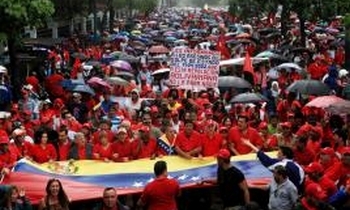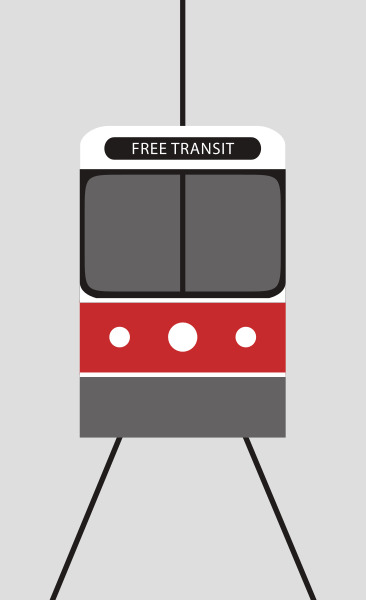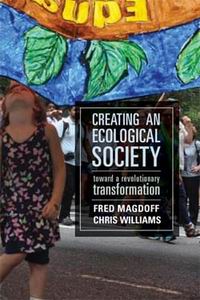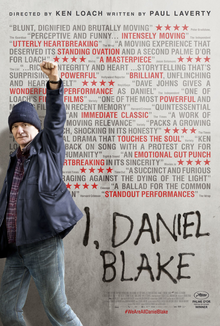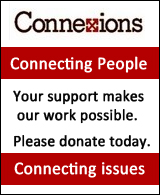Other Voices: The Connexions Newsletter
March 25, 2018
This Issue: Looking for Answers, Creating Alternatives
This issue of Other Voices features people who are questioning and challenging the way the world works and trying to create better alternatives.
Phyllis Omido, a courageous environmental activist in Kenya who faced arrest and physical intimidation, has led a successful campaign to force a lead-smelting company that was poisoning residents to shut down.
Justin Podur challenges the way the corporate media systematically spread lies and misinformation about Venezuela, a country faced by a systemic campaign of economic sabotage led by local elites and supported by the United States and its allies.
Judith Deutsch reviews Norman Finkelstein’s new book on Gaza. She asks: why are states and corporations assumed to have a “right to exist” but people – specifically, in this case, the people of Gaza – are not said to have a right to exist.
Bruce Lesnick asks what is the best way to organize against the mobilizations of the right. Most crucially, he asks, “how can we best harness the power of the 99% – the working class majority – in this ideological, social and economic battle?”
The book of the week is “Creating an Ecological Society: Toward a Revolutionary Transformation” by Fred Magdoff and Chris Williams. They set out to show that it is possible to envision and create a society that is genuinely democratic, equitable, and ecologically sustainable. And that it is possible -- not one moment too soon -- for society to change fundamentally and be brought into harmony with nature.
As always, we invite you to share this newsletter with your friends. You can forward this email, or send them the link to the Other Voices home page on the Connexions website at www.connexions.org/Media/CxNewsletter.htm. Please consider sharing it via social media.
If you'd like to subscribe and receive this newsletter by email every three weeks, please use this form.
Your feedback is appreciated - and so are donations to keep us doing what we're doing!

Topic of the Week
Alternatives
An extremely important aspect of Connexions‘ work is promoting the idea that there are alternatives to the status quo, and that people working together can bring those alternatives into being. There are thousands of articles and books on the Connexions website exploring many different types of alternatives. The Alternatives page in the Connexions Subject Index is a gateway into the idea of alternatives. Explore it here
This Week on Connexions.org
Gaza: Who or What Has a Right to Exist?
Judith Deutsch reviews Norman Finkelstein’s new book Gaza: An Inquest into its Martyrdom (Verso 2018). “His meticulous inquest into Israel’s atrocities and the moral depravity within humanitarian institutions,” she writes, “demands answers about who or what has a right to exist..” In political discourse, she notes, states and corporations, and even “the planet” are said to have a “right to exist” but people do not have a right to exist. In today’s world, Deutsch concludes, “states must be assessed in terms of the deaths they cause or facilitate inside and outside their borders.” Read more
Keywords: Gaza - Israeli War Crimes
Why Won't American Media Tell the Truth About What's Happening in Venezuela?
Since 1999, Justin Podur writes, the Venezuelan government has experimented with a process of social and economic reform using constitutional and electoral means. The elite and sections of the middle class have waged unrelenting warfare against these reforms. When a coup and media campaigns failed to upend the government or silence its mouthpiece, the opposition has resorted to economic warfare and sabotage. Rather than help to solve the economic problems, the opposition in the Assembly has celebrated them and worked to make them worse, in the hope that this will topple the government.
As the U.S. steps up its regime change efforts in Caracas, many leftists in progressive and social media have expressed confusion or equivocation. Their difficulty in distinguishing between an embattled social democracy and a violent, right-wing rejectionist opposition is a testament to the weakness of anti-imperialism in Western politics at the moment. Progressives should have no such difficulty. Chavismo is an incomplete, flawed, ongoing democratic experiment. The alternatives on display are clear: terror, occupation and austerity. Read more
Keywords: Venezuela - Counter-revolution
Kenyan activist defies harassment to bring major anti-pollution case to courts
Phyllis Omido is leading a landmark class action demanding a clean-up and compensation from a lead-smelting factory accused of poisoning local residents - including her own son. Phyllis Omido has been threatened by thugs, arrested by police and forced into hiding for organising opposition to a lead-smelting factory in Mombasa, which allegedly poisoned residents in the neighbouring shantytown of Owino Uhuru. But the NGO she founded, the Centre for Justice, Governance, and Environmental Action, has already forced the closure of the plant and is now pushing the courts to secure compensation for the victims and a clean-up of the community. Read more
Keywords: Lead Pollution - Industrial Pollution
Import and Die: Self-Sufficiency and Food Security in India
A World Bank-backed plan for the future of India doesn’t have much of a role for the majority of farmers. Successive administrations in India have been facilitating this plan by making farming financially unviable with the aim of moving farmers out of farming and into the cities to work in manufacturing or service sector jobs – jobs that, by the way, do not exist. It is an agenda founded on a bogus model of ‘development’. The aim is to restructure agriculture according to the wishes of the US and its agribusiness corporations. It entails displacing the existing labour-intensive system of food and agriculture with one dominated by a few transnational corporate agribusiness concerns which will control all aspects of the sector from seed to plate. As a result, small, independent cultivators and food processing concerns are being impoverished through exposure to a rigged international market and rising input costs or find it increasingly difficult to operate and are being forced out of the sector. Read more
Keywords: Food Self-Sufficiency - Industrial Agriculture
No Fare Is Fair: A Campaign for Free Public Transit
Public transit should be a right for everyone in Toronto. Using subways, buses, and streetcars shouldn’t require paying fares, or user fees, that penalize riders with lower incomes. Like public education, libraries, clean water, and healthcare, public transit should be funded by government revenues. Regardless of income, which part of the city you live or work in, or if you have mobility challenges, transit should be easily accessible. Free transit would be a critical step in addressing climate change. Read more
Keywords: Public Transit - Public Transportation
Website of the Week
Europe Solidaire Sans Frontières
ESSF is an association for international solidarity. Its website informs on peoples struggles as well as on in-depth debates. It seeks to be a tool for all those fighting for a world of solidarity. Find them here
Keywords: Internationalism - Solidarity
Book of the Week
Creating an Ecological Society: Toward a Revolutionary Transformation
By Fred Magdoff and Chris Williams
Because it aims squarely at replacing capitalism with an ecologically sound and socially just society, Creating an Ecological Society is filled with revolutionary hope. Fred Magdoff and Chris Williams, who have devoted their lives to activism, Marxist analysis, and ecological science, provide informed, fascinating accounts of how a new world can be created from the ashes of the old. Their book shows that it is possible to envision and create a society that is genuinely democratic, equitable, and ecologically sustainable. And possible -- not one moment too soon -- for society to change fundamentally and be brought into harmony with nature. Read more
Keywords: Economic Alternatives - Environmental Crisis
Film of the Week
I, Daniel Blake
I, Daniel Blake is a 2016 film directed by Ken Loach and written by Paul Laverty. It stars Dave Johns as Daniel Blake, who is denied employment and support allowance despite his doctor finding him unfit to work. His attempts to navigate and confront the Kafkaesque world of Britain’s social services bureaucracy make for a compelling film laced with anger and humour. Find out more
Keywords: Social Welfare - State Bureaucracies
Organizing
Counter Mobilization: an Effective Response to Right Wing Speech
It’s natural for any compassionate, thinking person to be angry at the notion of a right-wing extremist being given a prominent platform to promote their reactionary ideology. The question is: what should we do about it? What’s the best way to counter right wing propaganda? How can we most effectively shift the narrative from the phony answers offered by the right to the genuine solutions championed by the revolutionary left? How can we best ensure that the right wing talk doesn’t become right wing action? And critically, how can we best harness the power of the 99% – the working class majority – in this ideological, social and economic battle? Read more
Keywords: Civil Liberties - The Right
People's History
Sanitising the Suffragettes
Why is it so easy to forget an unsavoury aspect of Britain’s recent past? Why is it so easy to forget an unsavoury aspect of Britain’s recent past? Historians have a unique opportunity in 2018 – the centenary of British women gaining the right to vote – to re-examine a pervasive silence at the heart of the story: that of the nationwide bombing and arson campaign carried out by the Pankhursts’ Women’s Social and Political Union (WSPU). Between 1912 and 1915, hundreds of bombs were left on trains, in theatres, post offices, churches, even outside the Bank of England; while arson attacks on timber yards, railway stations and private houses inflicted an untold amount of damage. Yet the lives of the women who did this have been largely forgotten and erased from history, as a long-standing desire to sanitise the actions of suffragettes and portray them as perfect activists, or perfect martyrs. Read more
Keywords: Suffragettes - Women’s History
From the Archives
In Sudan, Rediscovering Ancient Nubia Before It’s Too Late
Long ignored by white archaeologists as a mere footnote, modern scientists are now racing to document what’s left of the ancient African civilization. The region known as Nubia -- home to civilizations older than the dynastic Egyptians, skirting the Nile River in what is today northern Sudan and southern Egypt -- was paid relatively little attention in archaeology. The land was inhospitable, and some archaeologists subtly or explicitly dismissed the notion that black Africans were capable of creating art, technology, and metropolises like those from Egypt or Rome. Modern textbooks still treat ancient Nubia like a mere annex to Egypt: a few paragraphs on black pharaohs, at most. Today, archaeologists are realizing how wrong their predecessors were — and how little time they have left to uncover and fully understand Nubia’s historical significance. Read more
Keywords: African/History - Archaeology
Seeds of Fire
March 24, 1853
Founding of the Provincial Freeman
The abolitionist newspaper the Provincial Freeman is founded by Mary Ann Shadd and Isaac Shadd in Windsor, Ontario. Published from 1853 to 1857, the Provincial Freeman proclaims itself “Devoted to Anti-Slavery, Temperance, and General Literature.” Mary Ann Shadd is the first African-American woman publisher in North America.
March 25, 1911
The Triangle Shirtwaist Factory Fire
A factory fire in New York City kills 146 garment workers, 129 women and 17 men, most of them recent Jewish and Italian immigrants. Factory managers had locked the doors to the building to prevent workers from taking unauthorized breaks. Trapped workers try to escape the flames by leaping from the eighth, ninth, and tenth floors. The owners of the factory are charged with manslaughter, but quickly acquitted. Their insurance payout substantially exceeds their financial losses from the fire, netting them a profit of about $400 per dead worker, this at a time when an average worker earned $7 per week.
March 26, 1974
The Chipko Movement
A group of peasant women in Reni Village in the state of Uttarakhand, India surround and hold on to trees in their forest to prevent them from being cut down by a lumber company given cutting rights by the government. The confrontation grows out of growing resistance to the commercial logging that is destroying the traditional forests that local people rely on for their livelihoods. On this day, knowing of the villagers’ resistance, the government has used a ruse to lure the men of the village to a distant location so they will be away when the loggers arrive. However, when loggers appear on the scene, the women of the village rush out to confront them. When it seems that logging will begin regardless, the women start hugging the trees to prevent them from being cut down. After a four-day stand-off, the loggers leave. When news of the success of the tactic reaches other villages, a movement of resistance to commercial logging quickly spreads, leading to hundreds of grassroots actions. The tactic is originally known by the Garhwali word “angalwaltha” but becomes more widely known by the Hindi term “Chipko”. .
April 3, 1851
Frederick Douglass rallies anti-slavery movement in Toronto
American abolitionist Frederick Douglass addresses a large anti-slavery audience in Toronto. A cheering crowd of 1200 fills St. Lawrence Hall to listen to Douglass, himself a former slave, speak on the evils of slavery.
April 11, 1972
The Common Front strikes in Quebec.
Over 200,000 public sector workers go on strike against the government, and Quebec grinds to a halt. The workers’ demands include a pay increase to match inflation, a say in working conditions, and equal pay for equal work. The Quebec government tries to break the strike with injunctions, arrests, huge fines imposed on striking workers, and finally back-to-work legislation, imposed on April 21.
When the striking workers go back to work after April 21, the government sets out to teach them a lesson, and jails the leaders of the big three union federations. Within hours, workers walk off the job again, and this time the strikes spread far beyond the public sector, turning into a general strike with more than 300,000 workers off the job. Workers seize control of 22 radio stations, and force anti-union capitalist newspapers to stop publishing.
In the end, the government agrees to free the jailed union leaders, and the workers agree to return to work.
Connexions Calendar
March 29, 2018 - Toronto
The Contradictions of Pension Fund Capitalism
Kevin Skerrett (Research Officer for the Canadian Union of Public Employees) and Chris Roberts (National Director of Social and Economic Policy for the Canadian Labour of Congress) discuss the significance of their edited book, The Contradictions of Pension Fund Capitalism (Cornell University Press, 2018). Heather Whiteside and Janice Folk-Dawson speak to the issues the book raises for the trade union and working class movements today..
April 5, 2018 - Toronto
Excessive Force: Toronto's Fight to Reform City Policing
Excessive Force takes the reader inside the G20 debacle; the police push for an ever-growing budget; the battle over carding, which disproportionately targeted the Black community; the police treatment of its own members in mental health distress; and the battles with an entrenched union that pushed back on Mukherjee's every move toward reform.
April 26 – 29, 2018 - Chicago
International Rosa Luxemburg Conference
Rosa Luxemburg dedicated her life to the fight against war, poverty, exploitation and any kind of suppression. Yet today in the age of neo-liberalism, we have the same problems as in the beginning of the 20th century. Luxemburg, a versatile Marxist theoretician, excellent journalist, and effective agitator has left us a body of work that may support and impact on the present left. We invite you to present relevant papers on the life and work of Rosa Luxemburg and her close comrades.
May 29 – June 1, 2018 - Regina
Socialist Studies 2018: Rekindling the Socialist Imagination
This year the Society for Socialist Studies meets on Treaty Four territory and the homeland of the Métis. Regina is where the Cooperative Commonwealth Federation penned its 1932 Regina Manifesto, which laid out a program for eradicating capitalism and replacing it with a planned socialist economy. It is also the site of the 1935 riot, which resulted when homeless and unemployed men demanding dignified work by trekking across Canada to Ottawa were stopped and attacked by the RCMP and city police. The symbolism associated with the Regina location of this meeting gives us a chance to re-evaluate the past and present of socialisms. In this moment of severe austerity in Saskatchewan and elsewhere, we are in desperate need for new and rekindled visions of just socialist futures.
This year we invite papers inspired by broad socialist traditions including anti-racist, feminist, eco-socialist, and anti-colonial, and we encourage conversations between socialisms and other freedom struggles, including Indigenous and Black liberation struggles, among others. We especially encourage papers that look at the successes and failures of past and present socialisms, from the CCF’s slide toward social democracy to the current enthusiasm for democratic socialism in the US and UK. We invite critical reflections on what has been left out of socialist visions and how we might put social movements, ecology, decolonization, and opposition to all forms of oppression squarely at the centre of our rekindled socialist movements, theorizing, and praxis.
The Connexions Calendar is an online calendar that exists to advertise events that support social justice, democracy, human rights, ecology, and other causes. We invite you to use it to promote your events. Adding events to the Connexions Calendar is FREE. We’ll give you a username and password which you use to log on. Use the contact form to arrange for a username and password.

Your support is needed to keep Connexions going
All of the work of the Connexions project is done by volunteers, but our expenses include rent, phone and computer costs and technical support, as well as expenses related to our ongoing project of converting printed archival materials into digital formats. You can make a one time or regular monthly contribution through the donate page on the Connexions website.
Bequests
Many of us have made working for social justice a lifetime commitment. If you are thinking about leaving a legacy for social justice that will live on, you might want to consider leaving a bequest to Connexions in your will. If you'd like to discuss this option, please contact us or see the Bequest page.



